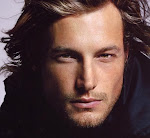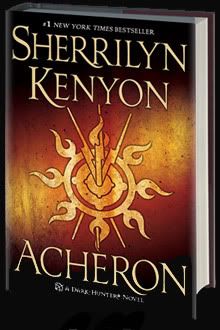 What can you say about a movie that mixes some of the most sublime Broadway melodies in history with frequent, almost gleeful gouts of blood from slashes of the razor?
What can you say about a movie that mixes some of the most sublime Broadway melodies in history with frequent, almost gleeful gouts of blood from slashes of the razor? You’d say Tim Burton is in rare form again. Sweeney Todd: The Demon Barber of Fleet Street updates the Stephen Sondheim ‘60s musical only in that it features goth-garbed Johnny Depp (as wrongly jailed Benjamin Barker, reborn as barber Sweeney Todd) and Burton’s wife, Helena Bonham Carter (who apparently had to audition for the part of Mrs. Lovett, the baker of “the worst pies in London”). This also means it wallows in Burton’s detailed, blue-gray monochromatic cinematography — every texture, every wall, every piece of fabric rendered with dead-eyed, clammy care. It shows us a shadowy 19th-century London that is nasty and brutish, while the movie itself is somewhat short (only 95 minutes). And for the first time in a long time (overlooking mistakes like Planet of the Apes and Charlie and the Chocolate Factory), Burton’s vision fuses perfectly with the subject matter.
Barker returns to London after 15 years in the pokey, having been sent there by corrupt Judge Turpin (Alan Rickman) who had eyes on Barker’s wife and later adopted the couple’s young daughter. Fifteen years has turned Barker into a creature capable only of thoughts of vengeance. He mutters lyrics that are bleaker than anything Broadway has ever dared churn out (“There’s a hole in the world like a great black pit, and it’s stuffed full of people that are stuffed full of sh*t”), but the thing that makes you want to go along for the ride is the damnably catchy music by Sondheim. This must be what Brecht and Kurt Weill had in mind in The Threepenny Opera: an examination of how horrific the world can be that had people humming Mack the Knife as they hit the exits.
There is something Brechtian about Burton’s Sweeney Todd, too, perhaps — the layers of carefully crafted ironic distance that allow us to perversely admire Depp’s killing spree. It comes through in the scene where Mrs. Lovett has her “epiphany” about what to do with the body of Pirelli (a rival barber played by Sacha Baron Cohen, a.k.a. Borat, whose attempt to blackmail Barker costs him his throat). She posits the notion that human meat would taste much better in her pies than the cat corpses that a rival baker sells, and so Mrs. Lovett and Mr. Todd mesh their peculiar insanities into one fine enterprise: he clips them with the razor; she serves them up as baked goods.
A love of the lurid is nothing new for Burton, and this type of “blood and circus” entertainment didn’t first show up in movies like Hostel and Saw. It was present in the grand guignol slasher plays of 19th-century Paris which served up amoral horror shows to wide-eyed audiences. Vengeance is a staple of cinema, art and theater all the way back to Jacobean drama, and possibly much before (what is The Odyssey if not a tale of righteous payback?). But here, it’s given fresh voice for a new generation: the gapers who will sit through Pirates of the Caribbean movies that are slower in the water than a leaky galleon. And there is something perversely amusing about seeing Depp — declared one of Hollywood’s biggest box-office stars, thanks to those cinematic theme-park rides — relishing a role that is definitely not for kids.
Depp has a grand chameleon-like talent: he takes on the mannerisms of his characters like well-worn clothes, yet offers (with the possible exception of Edward Scissorhands and Donnie Brasco) little inner life beyond a brooding countenance. Depp’s insistence on slipping into characters, rather than filtering up personal emotion in the American “Method actor” way, leaves us marveling at his performances objectively, rather than feeling them deeply. Something Brechtian about that, too. Whether it’s Z-movie director Ed Wood, gonzo writer Hunter S. Thompson, or a Keith Richards-influenced turn as pirate Jack Sparrow, Depp’s roles have largely been about protective coloration. His Mr. Todd is no exception, but here the character fits like a glove. Or maybe like the razor that sits so perfectly in his hand that he garbles out, “At last, my arm is complete!”
Here he’s in good form, displaying a glee not only for vengeance but for Sondheim’s memorable songs, belting out My Friends (a love song to his long-idle razors), No Place Like London and a duet with Rickman (Pretty Women) that is a highlight. There’s the gleeful A Little Priest, in which baker and barber cook up a scheme to get rid of the world’s unnecessary people, and a fine little comic set-piece called By the Sea. The music, written in the ‘60s, is certainly prettier than most recent Broadway or Disney-film fare, yet sung in ironic juxtaposition (such as Pretty Women, during which Depp holds a blade perilously above Rickman’s throat), it walks a fine razor edge between sublime beauty and sublime evil. Almost subversive.
But as usual, Burton is more interested in surface notes than in the true nature of evil. The details are dazzling, such as a mad camera sweep through a CGI-created London; or the cotton-gray clouds billowing above the city, recalling Batman Returns and German Expressionist cinema; then there’s an elaborate barber chair/abattoir assembly line, and those ever-higher, ever-sharper, ever-brighter gouts of blood. We get some background on how miserable London workhouses were for kids (Ed Sanders as street urchin Toby), and we can certainly dig why Barker is so pissed off, but we never really get the darker undercurrents beneath his character’s bloodlust. This might be too much to expect, asking Burton to probe the nature of evil with a little bit more precision than his Sweeney Todd swings a razor. But it would add more depth to Burton’s already impressive résumé if he could someday get past the gore and find the inhuman heart beating there.
 What can you say about a movie that mixes some of the most sublime Broadway melodies in history with frequent, almost gleeful gouts of blood from slashes of the razor?
What can you say about a movie that mixes some of the most sublime Broadway melodies in history with frequent, almost gleeful gouts of blood from slashes of the razor?
























0 comments: to “ A little off the top: Sweeney Todd ”
Post a Comment